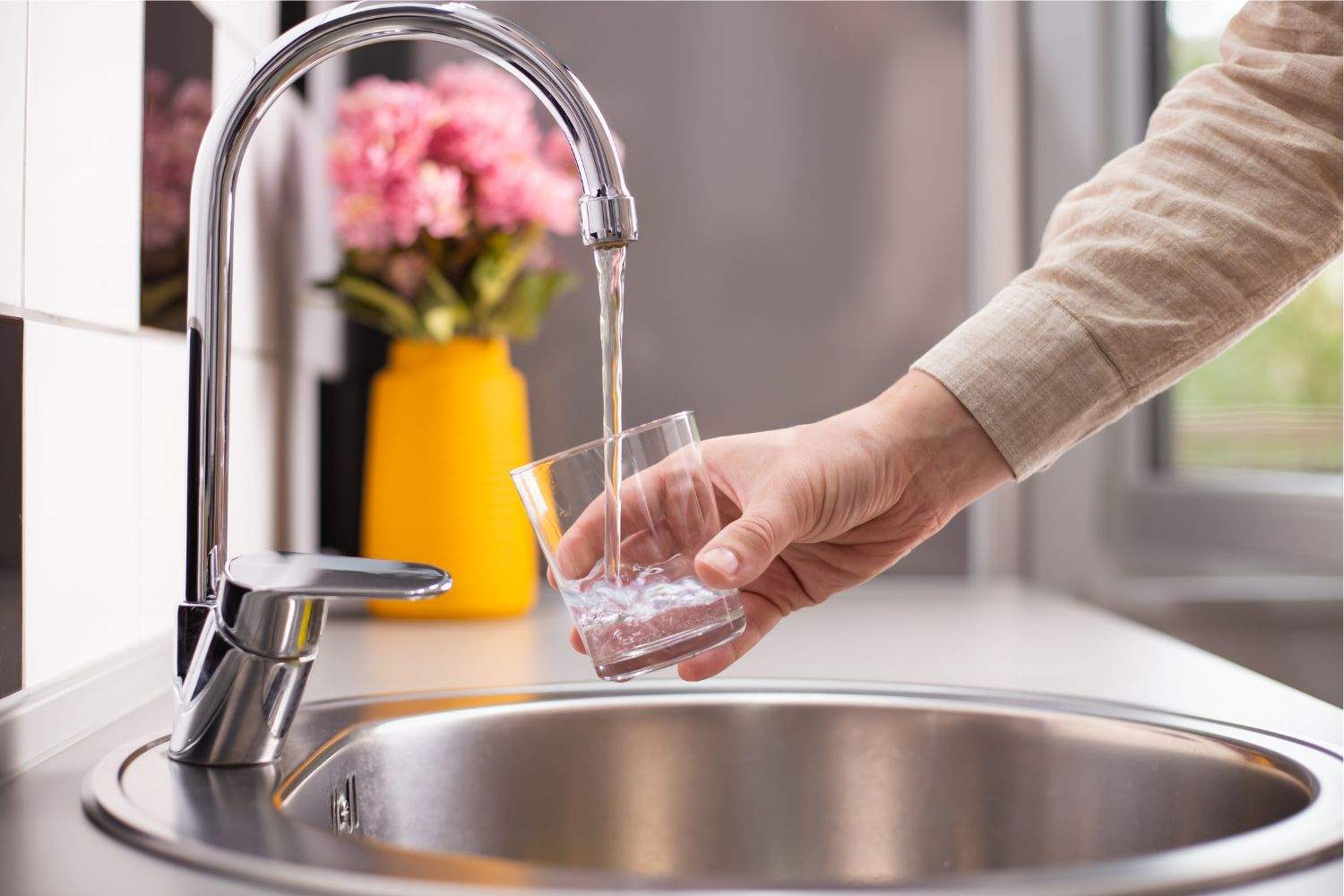There’s a difference between water that’s safe to drink and water that you enjoy drinking. Like many homeowners, you might want the safety and security of home water treatment systems. Depending on the type of water treatment you choose, you can soften your hard water, remove chemical contaminants, and enjoy tastier, gentler water. Learn more about how the right water treatment solution from 1-800-Plumber +Air can help with hard water problems and improve your water.
The Water Quality in Greensboro, NC
Greensboro, NC, releases water quality reports every month, and the city publishes annual compliance results demonstrating that the water is well within parameters. However, the water is slightly hard. The Water Quality Association defines “slightly hard” water as having between 1.0 and 3.5 gpg of mineral grains, and Greensboro water has between 2 and 3 gpg.
Understanding What Hard Water Is
What exactly is hard water? It’s water with high amounts of dissolved minerals or mineral salts, especially calcium and magnesium. Areas with lots of limestone, chalk, or gypsum in the soil tend to have harder water. While the minerals themselves are typically safe for consumption, many homeowners dislike the hardness because of how it can impact taste, plumbing, and the functionality of appliances.
How Hard Water Can Affect Your Health and Plumbing
While hard water is rarely dangerous, it can have negative effects on your health and well-being. Some of the reported effects include:
- Stomach discomfort, especially if you’re sensitive to salt
- Dry hair and frizziness
- Excessive drying effect on your skin
- Low sudsing or lathering of soaps, which can make body soap and laundry soap less effective
There are also some potential health considerations with hard water, such as its effects on nutrient absorption and kidney stone formation. Many people also don’t like the taste of slightly hard or hard water, so they drink less water overall.
But where hard water is known to be particularly harmful is in your building. The minerals can build up in fixtures, appliances, and pipes. Pipes can narrow and develop a crust that stops valves from opening. Water heaters will collect sediment that shortens their lifespan, and fixtures and faucets will develop a chalky residue that’s hard to clean. Over time, hard water buildup can increase your risk of leaks, low water pressure, and fixture malfunctions.
How to Improve Hard Water
Different hard water treatment solutions exist to filter out the unwanted minerals. Depending on your preferences, you might install filters or treatment fixtures at specific points in your home, such as under the kitchen sink to protect the kitchen water and dishwasher, or at your water heater to protect the heater and hot water pipes from sediment.
Options for Water Treatment
At 1-800-Plumber +Air, we offer multiple treatment options for hard water issues and other water concerns. One of the most popular solutions is a water softener, which uses salt ions to pull out or neutralize the minerals. Activated carbon filters can bond with some mineral contaminants and strip VOCs, THMs, herbicides, and pesticides out of your water. Reverse osmosis filters can also block a wide array of contaminant molecules, leaving behind clarified, purer water than water softeners alone can provide.
Reach Out to 1-800-Plumber +Air Today
At 1-800-Plumber +Air, we specialize in providing fast, friendly plumbing expertise. Our Greensboro-area team is familiar with the water quality and composition in our local communities, and we can help you find the right solutions for your home, family, and lifestyle. Contact us today to schedule an appointment and to talk about different hard water treatment solutions.
Image credit: Boris023 // Shutterstock

